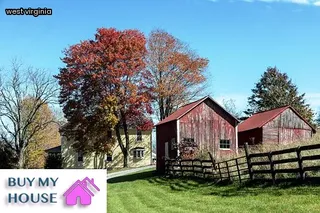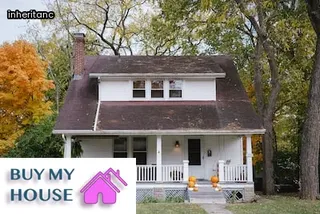In West Virginia, probate is the process of completing the legal steps necessary to transfer title or ownership of property from a deceased person to their heirs. The requirements for probate in West Virginia include filing a petition with the appropriate court, determining the validity of the will and identifying all heirs entitled to receive assets from an estate.
In addition, it's important to make sure that all liabilities are paid off and any taxes due are satisfied before transferring ownership. It's also necessary to obtain letters of administration or executorship from the Clerk's Office, which grants permission for someone appointed as executor or administrator to manage the estate.
An inventory of assets must be made and creditors must be notified. Finally, a final accounting and distribution of assets must be prepared before approval can be given by the court.

The complexity of West Virginia probate laws can make it difficult to navigate real estate inheritance and sales. It is important to understand the process of transferring assets out of probate in order to ensure that all legal requirements are met.
The first step is to determine if the property is subject to probate or if an alternate process will apply. If the property requires probate, you must obtain a court order confirming that the estate has been legally closed and all debts have been paid before any assets can be transferred.
This may require filing multiple documents, including an inventory of all assets and a request for distribution of those assets. Once approval has been obtained, you can transfer title by submitting a deed, along with other required documentation, to the county recorder's office for recording.
Depending on the value of the property, additional paperwork may be necessary to comply with state laws and regulations. In some cases, it might be possible to avoid probate altogether through the use of trusts or other legal instruments set up prior to death; however, this should only be done after consulting with an experienced attorney familiar with West Virginia law.
Gifting and jointly held property in West Virginia are subject to the state’s probate laws. Knowing what is exempt from probate and understanding the process of real estate inheritance and sales can be difficult, but navigating these matters can be made easier with the right information.
In West Virginia, it is important to know that gifts of any kind are considered as assets when it comes to probate proceedings. Property that is held jointly with another person may also need to go through probate, depending on how it was acquired.
Gifting or transferring real estate does not automatically exempt the asset from going through probate, so if you plan on making such a transfer it is best to understand all of your legal options first. An experienced attorney can provide guidance on how to navigate real estate inheritance and sales in West Virginia according to state law.

In West Virginia, the difference between a testate and intestate estate is significant when navigating real estate inheritance and sales. A testate estate is one in which the decedent has left a valid will behind that outlines their wishes for the distribution of their real estate upon death.
An intestate estate is one in which the decedent did not leave a valid will or any other document directing what should happen to their property after death. In an intestate situation, state law dictates how the property is to be distributed among heirs, such as spouses, children, siblings or other relatives.
When it comes to real estate inheritance and sales in West Virginia, it's important for individuals to understand the difference between testate and intestate estates so they can make informed decisions about how to handle their affairs.
In West Virginia, an executor is the person who administers a deceased person’s estate and is typically appointed by the probate court. As part of their duties, an executor must carry out the terms of the will as well as oversee any real estate transactions related to the estate.
An executor may refuse to administer an estate for various reasons such as if they are not able to properly fulfill their duties or if they are unable to handle the complexity of the estate due to a lack of expertise in West Virginia probate laws. An executor can also refuse to administer an estate due to health issues or personal conflicts that could interfere with their ability to perform their duties.
In order for an executor to legally refuse administering an estate in West Virginia, they must submit a written request to the probate court outlining their reasons for refusing and provide documentation proving that they are not capable of fulfilling their responsibilities. The court will then appoint another individual or organization who can take on these responsibilities instead.

The cost of going through probate in West Virginia can vary depending on the value of the estate and the complexity of the process. Generally, there are court filing fees that must be paid, as well as costs associated with publishing a notice to creditors.
Additionally, an executor or administrator is typically entitled to a fee for their work in settling the estate. All these costs must be taken into consideration when navigating real estate inheritance and sales in West Virginia.
Furthermore, if there are disputes over property distribution or other issues within the estate, additional legal fees may be incurred. It is important to understand all related expenses before beginning the probate process in order to ensure that all parties involved are aware of their financial obligations throughout the proceedings.
In West Virginia, a Small Estate Affidavit is a legal document used to transfer assets when the estate of a person who has passed away is less than twenty-five thousand dollars and does not involve real estate. This form is typically used for the purpose of transferring bank accounts, stocks, bonds, vehicles, and personal property from the estate of the decedent to family members or other beneficiaries.
It can also be used to pay debts and taxes associated with the estate. To use this affidavit in West Virginia, it needs to be completed by an executor or administrator of the will and must include documentation such as death certificates, proof that all heirs have been notified according to law, proof that all debts have been paid, a copy of the will (if applicable), and any other relevant documents.
Once these forms are completed correctly they must be filed with the local probate court in order to transfer ownership rights.

In West Virginia, there is no inheritance tax on real estate and other assets. When an individual passes away, any property or assets that are left behind become part of the estate.
This includes real estate, cash, stocks, bonds, and other investments. The executor or personal representative of the estate is responsible for distributing the assets to the heirs according to the will or by law if there is no will.
Depending on the size of the estate and types of assets involved, it may be necessary to go through probate court in order to have a judge issue orders regarding inheritance tax and other matters related to dividing up the assets. In some cases, it may be possible to avoid probate altogether by using certain strategies such as a living trust or transferring property into joint ownership prior to death.
In West Virginia, a will is usually read shortly after the death of the creator. It is typically done in the presence of an executor or administrator who is responsible for handling the estate.
The executor must be named in the will and is usually a family member or close friend of the deceased. After being read, a copy of the will must be filed with the local probate court within 10 days; however, it can also be filed prior to death.
The court then reviews the document and determines if it is valid and authentic before granting it legal status. If applicable, this process also requires that any real estate or property listed in the will be appraised by an independent third-party agent to determine its estimated value before placing it into probate.
Once this step is complete, all assets and liabilities of the deceased are distributed according to their wishes outlined in the will.

In West Virginia, the will of a deceased individual is typically accessible to those involved in the probate process. This includes the executor of the estate, the personal representative, beneficiaries, and family members.
The court may also make the document available to the public upon request. Generally speaking, wills are kept confidential and not disclosed to anyone else until after they have been admitted to probate and officially filed with the court.
It is important to note that individuals named in the will should be notified as soon as possible after its admission to probate. This allows them to prepare for any inheritance or assets associated with it.
As always, it is best practice to consult with an experienced attorney or financial advisor who can provide guidance on navigating real estate inheritance and sales under West Virginia's probate laws.
In West Virginia, it is important to adhere to state law when it comes to filing a probate case. The time limits for filing a probate case in West Virginia are outlined by the Probate Code.
Generally, a person has six months from the date of death of a decedent to file the necessary paperwork and begin proceedings. If this deadline is not met, then the executor or administrator of the estate must obtain permission from a judge in order to proceed.
This can be granted if good cause is shown and all interested parties agree. It's important to note that even if an extension is granted, there are still deadlines that must be met in order for the estate to be properly administered and closed.
A knowledgeable attorney can help ensure that all legal requirements are followed and deadlines observed so that inheritance and sales of real estate can be handled correctly and efficiently.

When it comes to probate law in West Virginia, there are several documents that must be filed with the court during the probate process. This includes a petition for probate of will and appointment of personal representative, a Statement of Heirs form, an Inventory and Appraisement of Estate Assets form, an Order Appointing Personal Representative form, a Notice to Creditors form, a Final Account and Discharge of Personal Representative form, and a Decree of Distribution form.
These documents provide important information about the estate being inherited or sold, outlining all assets and liabilities associated with the property. Additionally, if any taxes are due on the estate at the time of inheritance or sale, additional forms may be necessary.
In order to ensure that all necessary documents are properly submitted during the course of probating an estate in West Virginia it is always advisable to consult an experienced attorney who is knowledgeable in state laws related to real estate inheritance and sales.
Challenging a will or contesting a trust in West Virginia is a complex process that should be approached with caution. The first step is to understand the probate laws of West Virginia and how they apply to the estate in question.
When challenging a will, it is important to consult an experienced lawyer who can help navigate legal proceedings. The executor of the estate must be given notice and an opportunity to respond before any petitions can be filed with the court.
In addition, certain grounds must be established for disputing the validity of the will or trust. These grounds include lack of capacity, undue influence, fraud, or revocation.
It is important to understand the statutory deadlines for filing objections as well as any relevant statutes of limitations that may apply to the case. Once all relevant documents have been gathered and reviewed by an attorney, they can determine whether there is sufficient evidence to challenge a will or trust in West Virginia.

In West Virginia, an Administrator or Personal Representative of an Estate is the individual responsible for handling the affairs of a deceased person’s estate. This includes their real estate assets and property, as well as making sure that all debts are paid off and any remaining assets are distributed to the rightful heirs.
When a person passes away without having specified who should take care of their estate in a will, it will be up to the West Virginia court system to appoint an Administrator or Personal Representative. It is then the responsibility of this appointed individual to manage the administration of the estate.
They must act in accordance with state probate laws and ensure that all relevant legal documents are filed correctly with the court regarding such matters as taxes, inheritance rights and title transfers for any real estate properties involved. Furthermore, they must make sure that creditors are paid from any proceeds before distributions are made to beneficiaries and that all heirs receive notification about their rights to inherit any assets left by the deceased.
It is important for an Administrator or Personal Representative of an Estate in West Virginia to be familiar with both state probate laws and local real estate regulations so they can navigate these complex matters successfully on behalf of the decedent's heirs.
In West Virginia, a deceased person's estate must go through probate before it can be administered. During this process, creditors may have certain rights to the assets of the estate.
Creditors must typically present a claim to the executor or administrator of the estate in order for their rights to be considered and acknowledged. This is usually done by submitting a written request for payment within the timeframe allowed by law.
Depending on the nature of the debt owed, certain creditors may have priority over others when it comes to receiving payment from the deceased's estate. In addition, there may be other restrictions or exemptions that would apply in different situations.
It is important for anyone involved in administering an estate in West Virginia to understand all of their legal rights and obligations regarding creditor claims before proceeding with any transactions related to real estate inheritance or sales.

In West Virginia, probate law can be complex and confusing. Settling disputes over an estate can be even more difficult to understand.
It is important to know that a person must go through the court system in order to settle any disputes over an estate. The court will require proof of ownership of the estate before making a decision on how it should be divided.
A lawyer familiar with West Virginia probate laws can help navigate the process and ensure that all parties involved are treated fairly throughout the process. The court will determine who has rights to the estate by looking at documents such as wills, trusts, and other legal documents.
In cases where there are no legal documents, they may use evidence such as previous communications or testimony from witnesses to make their decisions. Once all parties have been heard, the court will make a ruling on how the estate should be divided among those involved.
All parties should understand their rights and responsibilities when it comes to settling disputes over an estate in West Virginia in order to ensure a fair outcome for everyone involved.
Navigating West Virginia probate laws can be a complicated process, especially when it comes to real estate inheritance and sales. The best way to protect your assets and ensure that they are passed on according to your wishes is by executing a last will and testament.
It is important to create a legal document that outlines how your property, assets, and other possessions should be distributed after you pass away. This document should include the names of the beneficiaries, their relationship to you, and what each person will receive.
Additionally, naming an executor of your estate is essential as this person will be responsible for carrying out your wishes in accordance with the law. To ensure that this document is properly executed and filed with the appropriate court in West Virginia, it is best to consult with an attorney who specializes in probate law in the state.
An attorney can help guide you through every step of the process from creating the document to ensuring its legality so that it can be properly enforced once you are gone.

When a family member or friend passes away in West Virginia, it is important to notify certain people and organizations. The deceased's close relatives should be told as soon as possible.
Other individuals who should be notified include the executor of the will, the county probate court, banks and other financial institutions with which the deceased had accounts, insurance companies, creditors, any government agencies with which the deceased was associated (such as Social Security), and anyone else who may be affected by their passing. Additionally, if real estate is involved in the estate, then all persons named in any deed must also be notified.
It is essential to understand that there are specific regulations set in place for this process and failure to follow them may result in legal ramifications. Furthermore, navigating real estate inheritance or sales can be difficult so it is advisable to seek professional guidance when necessary to ensure that all processes are conducted properly under West Virginia probate laws.
Closing an estate in West Virginia requires navigating a few steps. First, it is important to identify the heirs of the deceased person's estate and determine whether a will exists.
If a will is found, the executor should seek legal advice to understand the scope of their duties and responsibilities. Next, all debts must be paid off and creditors notified that the deceased has passed away.
After all debts are settled, taxes must be calculated and paid both at the federal and state level. The remaining assets can then be distributed among designated heirs, as outlined in either a will or according to West Virginia's intestacy laws.
If real estate property is involved with an inheritance or sale, additional steps may need to be taken such as obtaining title searches and filing documents with local governments. It is also helpful to consult with a qualified probate lawyer who can provide guidance throughout the process.

Finding a good lawyer to handle a loved one's estate in West Virginia can be difficult and intimidating, especially when it comes to navigating the state's probate laws. It is important to research the law firm or attorney you are considering hiring and ask questions about their experience with real estate inheritance and sales, as well as any other probate issues that may arise.
Additionally, it is helpful to speak with other clients who have used the services of the lawyer you are considering to gain further insight into how they handled their case. Finally, make sure that your chosen lawyer is licensed in West Virginia and familiar with its state laws before signing an agreement for representation.
Doing so will ensure that your legal interests are properly protected throughout the process of handling your beloved one's estate.
In West Virginia, probate is generally required for real estate inheritance and sales. The process of probating an estate in the state of West Virginia can be complex.
However, it is necessary to ensure that all legal requirements are met and that all inherited property is handled correctly. When a deceased individual owns real estate in their name alone at the time of their death, a court-supervised process called probate must occur in order to transfer title to another party or parties.
During this process, the court reviews the validity of the will and appoints an executor to manage the estate's assets. The executor is responsible for paying any taxes or debts that may be due and distributing any remaining assets according to the terms set forth in the will or by law if there is no will.
Probate also gives creditors a chance to submit valid claims against the estate. All these steps are necessary to ensure that any inherited property is legally transferred and any debts are paid before distribution of assets can occur.

In West Virginia, there is no specific probate threshold in terms of the value of an estate required for a decedent's assets to be placed into probate. However, there are certain real estate inheritance and sales transactions that must go through the probate process.
For example, if any real estate property belonging to a deceased person is determined to be worth more than $25,000, or if it is part of a larger estate with a total value exceeding $50,000, the transaction must be completed through probate court. Additionally, any real estate sales that involve an heir or beneficiary must also pass through probate court before the sale can be finalized.
It is important to understand how West Virginia's probate laws apply to real estate transactions in order to navigate inheritance and sales legally and properly.
In West Virginia, the probate process depends on the size of the estate and the complexity of the will. Generally, most probates take anywhere from four to six months to complete.
The first step is filing a petition with the court in the county in which the deceased resided. Once this is done, creditors have a certain amount of time to make any claims against the estate.
After that period has passed, an executor or administrator can be appointed and begin to gather and inventory all assets belonging to the estate. Next, they must pay taxes and outstanding debts from those assets.
Finally, once all debts are paid and taxes filed, any remaining assets can be distributed according to instructions left in the decedent’s will. It's important for potential heirs or beneficiaries to understand how long it takes to probate an estate in West Virginia so that they know when they can expect their inheritance.
Probate property in West Virginia is any real estate owned by a deceased person, or "decedent," that is subject to the laws of probate. Probate property includes all real estate owned by the decedent at the time of death, such as a house, land, or other real property.
The decedent's will typically determines who inherits the probate property and how it will be distributed. If there is no will, then state law dictates how the property should be divided among family members.
In addition to determining inheritance rights, West Virginia probate laws also dictate how probate property can be sold or transferred after a death. When transferring or selling probate property in WV, it is important to understand and follow the applicable laws and procedures in order to ensure that all parties are legally protected and that the transfer or sale is valid.